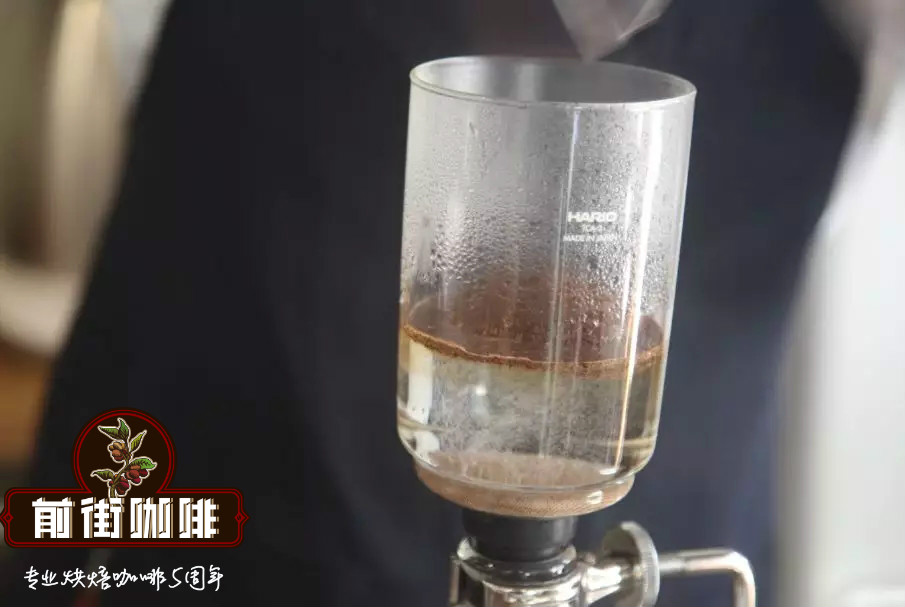What is the best coffee in Malawi? Malawi sun geisha coffee flavor Malawian coffee production

Professional coffee knowledge exchange more coffee bean information please follow the coffee workshop (Wechat official account cafe_style)
Malawian coffee was introduced by Scottish missionaries in the late 19th century and was successfully grown in southern Malawi. At the beginning of the 20th century, because Malawi was a British colony, large coffee plantations were owned by colonists, but the Malawian people developed a common cooperative model, and coffee production increased greatly. Although it disintegrated with political factors, the cultivation of coffee has made great progress, reaching 7000 tons in the 1990s.
Misuku is near the Sonway River, the border river between Malawi and Tasania. The plateau hills at an altitude of 1700 to 2300 meters are the main topography, which is 320km away from Mzuzu City, a commercial and administrative town in North Malawi. Misuku hills have a large number of weathered parent rocks, rich in acid, mostly dark brown dark red clay and sandy soil, the climate is very suitable for the growth of Arabica beans.
The Mzuzu coffee growing area is an important and famous small area in the Misuku Mountain Mountains, because there is a large coffee organization called
The Muzuzu Coffee planting Union Cooperative (the Mzuzu Coffee Planters Cooperative Union), established in 2006, now has 3500 members of small coffee farmers, 20% of whom are women. This cooperative is subdivided into a combination of small cooperatives, each of which has its own independent washing farm to serve local coffee farmers. The average planting area of each member family is only 0.5 hectares, a very small land area. Although these small coffee farmers are members of various small cooperatives, they can also sell the harvested red cherry coffee fruits to local purchasers, as long as the price is attractive, which is a small supplement to the family income throughout the year.
Malawi geisha (Geisha) coffee was introduced from neighboring Ethiopia in the middle of the last century, and now it is mostly grown in the highlands of the Misuku Mountain Mountains. Coupled with the vigorous promotion and assistance of members of the largest coffee growing cooperative in Malawi, it tries its best to assist in production and marketing, so Malawi coffee can also attract the attention of global buyers, and its acidity is not as bright as Kenya. But the sweetness and aroma are more standard, especially in the sweetness of fruit aroma and finish.
Malawi is a small country in southeastern Africa and a landlocked country not near the sea. most of its coffee is grown in the northern plateau, but the yield is not large. But although it is not near the sea, it can be seen on the map that there is a very large lake to the northeast of it. It is Lake Malawi, which is also the natural boundary between Malawi and its neighbors. If the sour in Kenya is compared to the treble, the sour in Malawi feels like a mid-bass. However, in particular, although the export volume is very limited, the mode of production and marketing of its coffee is that local people set up their own production and marketing companies to be responsible for the production, processing and sale of coffee, rather than the collection and distribution of coffee led by the government in Kenya. In this independent mode of operation, the quality of coffee in Malawi has been maintained at a considerable level, so it is also one of the favorite coffees of traders.
Missouri coffee is of the best quality in Malawi and is often sold at high prices. Soft acidity, rich tropical fruit aroma, citrus and lemon acid add vitality to the coffee, is a strong tropical wild characteristics of coffee.
Malawi sun-dried geisha coffee, through the sun treatment, presents the flavor description: orange, flower, ripe fruit, orange, cantaloupe, honey plum sweetness, bright berry wine flavor, typical tropical ripe fruit aroma, bright and rich fragrance.
END
Important Notice :
前街咖啡 FrontStreet Coffee has moved to new addredd:
FrontStreet Coffee Address: 315,Donghua East Road,GuangZhou
Tel:020 38364473
- Prev

Costa Rican Blumas processing Plant Coffee introduces the roasting process suitable for Costa Rican coffee
Professional coffee knowledge exchange more coffee bean information please pay attention to the coffee workshop (Wechat official account cafe_style) Costa Rican coffee is the most stable quality of Central American coffee, the most important is that the coffee grows in the complete shade of big trees and cool rainy night and the morning and evening temperature difference in the natural environment, coupled with rich soil and stable progress of the middle and later stages of treatment to make Costa Rica
- Next

The most natural and sacred coffee producing area in Colombia, the Kula coffee producing area, introduces the flavor characteristics of Orange River coffee.
Professional coffee knowledge exchange more coffee bean information please follow the coffee workshop (Wechat official account cafe_style) Huila Vulla province is located in western Colombia, coffee grows on the canyon slope formed by the border between the western coastal mountains and the eastern mountains, this area has always been Colombia's big barn for producing good coffee, of which the town of St. Augustine (San Augustin) because of Luo
Related
- Does Rose Summer choose Blue, Green or Red? Detailed explanation of Rose Summer Coffee plots and Classification in Panamanian Jade Manor
- What is the difference between the origin, producing area, processing plant, cooperative and manor of coffee beans?
- How fine does the espresso powder fit? how to grind the espresso?
- Sca coffee roasting degree color card coffee roasting degree 8 roasting color values what do you mean?
- The practice of lattes: how to make lattes at home
- Introduction to Indonesian Fine Coffee beans-- Java Coffee producing area of Indonesian Arabica Coffee
- How much will the flavor of light and medium roasted rose summer be expressed? What baking level is rose summer suitable for?
- Introduction to the characteristics of washing, sun-drying or wet-planing coffee commonly used in Mantenin, Indonesia
- Price characteristics of Arabica Coffee Bean Starbucks introduction to Manning Coffee Bean Taste producing area Variety Manor
- What is the authentic Yega flavor? What are the flavor characteristics of the really excellent Yejasuffi coffee beans?

